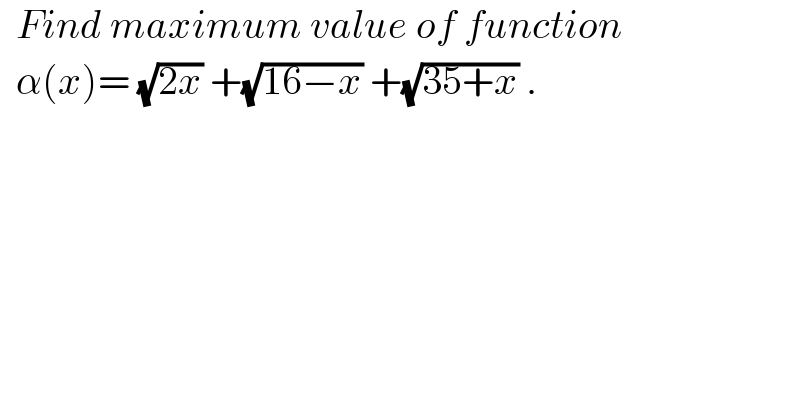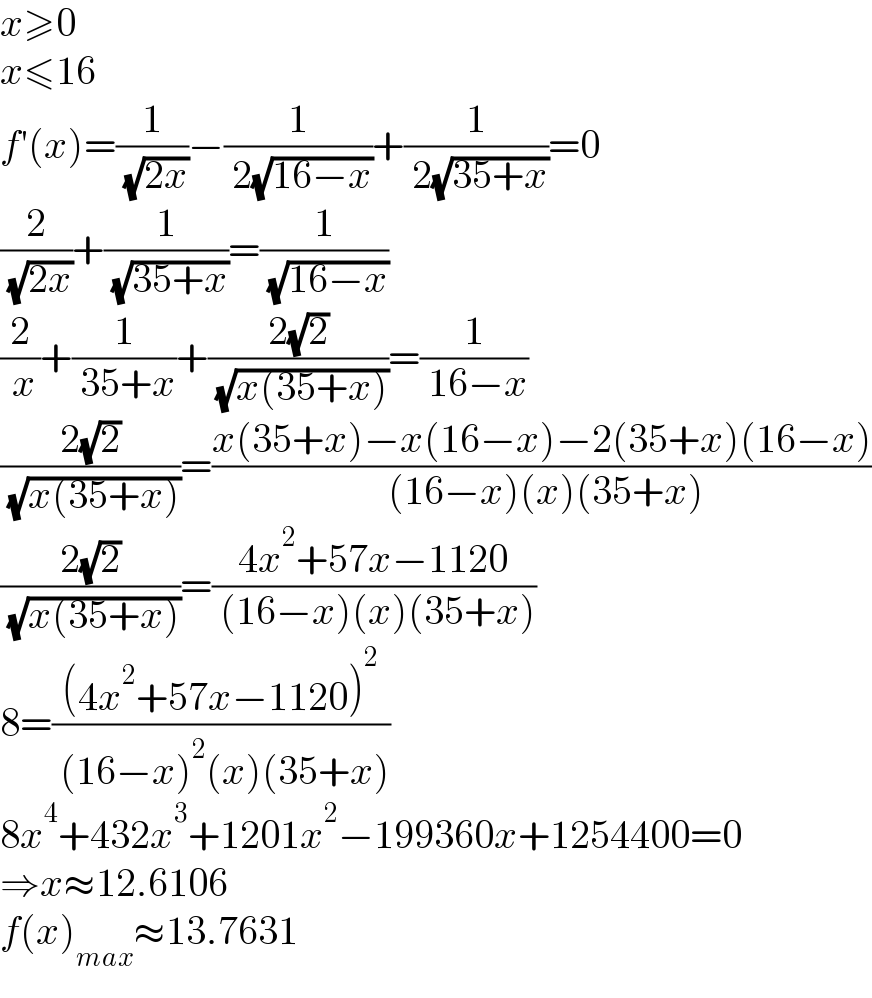
Question and Answers Forum
Question Number 151685 by iloveisrael last updated on 22/Aug/21

Answered by mr W last updated on 22/Aug/21

Commented by mr W last updated on 22/Aug/21

Commented by MJS_new last updated on 22/Aug/21

Commented by mr W last updated on 22/Aug/21

Commented by iloveisrael last updated on 22/Aug/21

